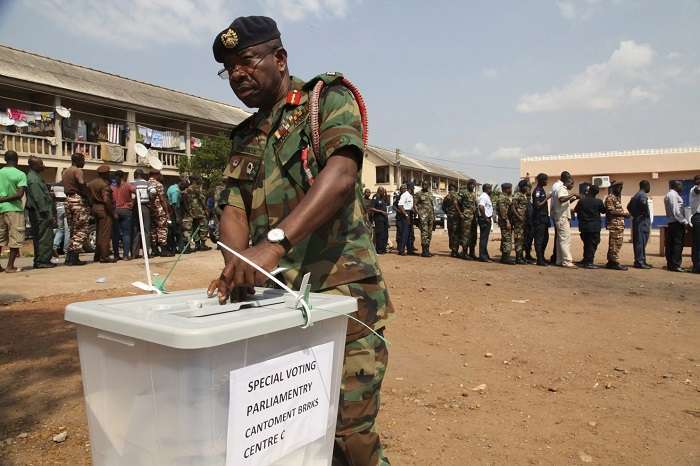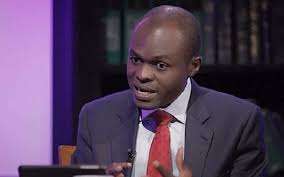The conversation around voting secrecy and its legal implications has gained momentum following the special voting process, where a fire service officer was reportedly arrested for taking a photograph of the ballot.
This incident sparked questions about the legality of such actions and the broader intention of the law governing voting secrecy.
A private legal practitioner Martin Kpebu has clarified the matter and why the law forbids such practices.
Lawyer Kpebu began by addressing the intent behind the legal provisions.
Referring to Section 31 of the Representation of the People’s Act (PNDC Law 284). He emphasized;
“A person shall not communicate how a voter voted. So, it includes the voter himself. If the voter communicates it, he too is a person. otherwise, we will be making a mockery of the law.”
Martin Kpebu Legal Practitioner
This statement highlighted the comprehensive nature of the law, which seeks to maintain the sanctity of the voting process.
Lawyer Kpebu distinguished between immediate and post-election disclosure of voting choices. He emphasized;
“Communicating how you voted after elections have been declared should not be a problem at all. But to have just voted, and then there and then, an hour after [before] the votes have not been counted, and then you have your vote out there, how you cast your vote or the ballot out there, I think is within the law.”
Martin Kpebu Legal Practitioner
This distinction underscores the legal framework’s intent to avoid signaling or influencing other voters during the voting process.
The discussion also touched on the constitutional principle of a secret ballot, which Kpebu explained is foundational to protecting the voter.
However, concerns have been raised on an alternative perspective, questioning whether a voter’s voluntary decision to disclose their vote violates the law.
“The law says a person shall not communicate how a voter voted. It is not restricted to only the voter; it applies to every person above the age of 12 years and of sound mind.”
Martin Kpebu Legal Practitioner
Lawyer Kpebu acknowledged that certain interpretations of the law might appear overly restrictive.
For instance, the idea that a voter could never disclose their voting choice—even decades later—seems unreasonable. However, he maintained that the literal interpretation of the law must be upheld unless amended. He charged;
“Just because you find a law undesirable, then you say that law has no purpose at all. You don’t interpret a law to make it useless- the [principle of interpretation] must give effect to the words of the law.”
Martin Kpebu Legal Practitioner
This highlighted the balance between adhering to the law’s letter and addressing potential absurdities in its application. He emphasized;
”The law is not seeking to protect you alone. But it’s also proscribing, prohibiting every person from doing it. So is bigger than just protecting the voter.’’
Martin Kpebu Legal Practitioner
The Broader Implications

The discussion concluded with Lawyer Kpebu emphasizing the need for clarity and consistency in interpreting the law.
“If the interpretation is that we should never disclose for 100 years, well so be it. But it cannot be that, and because [such a] law is burdensome, then we say the law doesn’t even exist.’’
Martin Kpebu Legal Practitioner
The debate around voting secrecy and the legalities of disclosing one’s vote reflects broader questions about the balance between individual rights and collective integrity in electoral processes.
Martin Kpebu’s perspective underscores the complexities of the law and the importance of adhering to its provisions while considering potential reforms to address perceived absurdities.
READ ALSO; Efia Odo Denies Endorsing Bawumia, Clarifies Earlier Statement



















